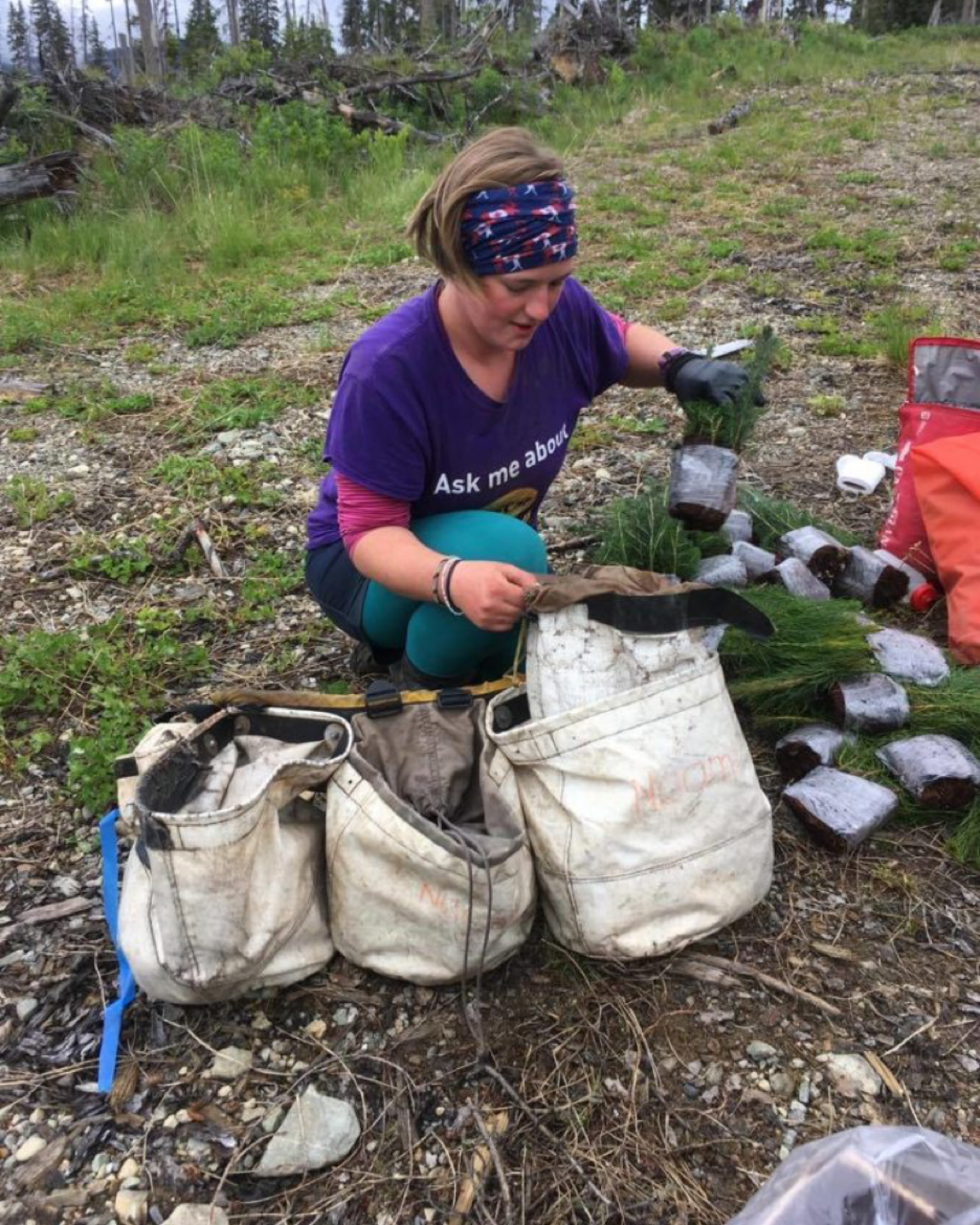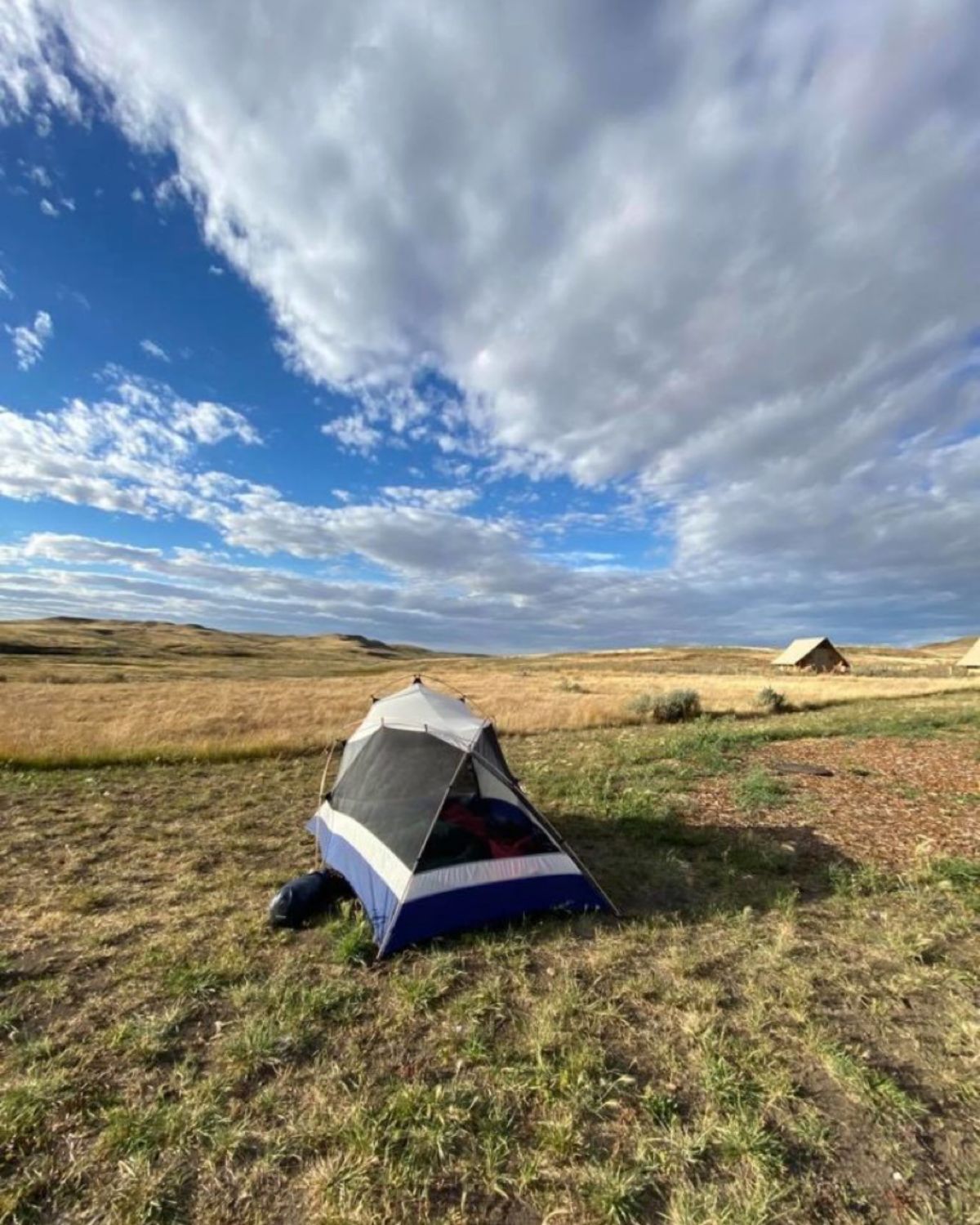
The virtues of taking a break
I spent this past summer living in my tent. This may sound odd, but everyone who knows me knows this is a regular occurrence. When school is out, I head to B.C. and spend a significant part of my time off working in the bush. I have spent two summers tree planting in Northern B.C. This year I was fruit picking and working on farms in the Okanagan Valley and the Kootenays, filling in for the large labour gap that has arisen due to COVID-19 border restrictions and the inability for the migrant workers who usually work the orchards to enter Canada for the season, while also being on call as a wildland firefighter.
This type of work is by no stretch an easy summer break. It is hard work with long and unpleasant hours, limited facilities and often little access to the outside world. So why do I do it? Bush jobs pay very well if you work hard, and I am able to finance my studies during the academic year, but mainly I do it because I love the lifestyle and I love the people. The types of individuals you meet while doing work that requires you to be disciplined and physically able range from fellow students to middle-aged folks who have lived their entire lives in the bush. In camp life, where the people you are stuck with are your closest circle, friendships forge at lightspeed rates and the intenseness of such social connectedness is incomparable to ‘the real world.’ It is intense in all ways: you work hard, you play hard, you throw yourself into a bright and wonderful whirl of constant exhilaration. The lack of internet or cell reception lets you plough through books before bed and hang out uninterrupted by the fire and simply switch off the from the outside world.

That, I guess, is the main reason why I do it. I get out. I switch off. I entirely remove myself from the academic world of competition and constantly proving oneself. I don’t get an internship which I hope will bring me higher up the career ladder or work a job that looks good in hopes of getting into grad school. Does it advance my journey along a traditional career path? Perhaps not, but that’s why I throw myself into the academic world that I love for the remaining eight months of the year. What I do with my summers may not seem useful at face value, and it is certainly not relaxing or restful, but it is a true break. I don’t know what other people’s outlets are. Maybe you hate camping and being dirty, and that’s perfectly fine too — but it is important to figure out what it is that brings you peace, and to take the time to simply exist. Find what it is for you, especially now in a period of online school and isolation and just general confusion. Make it a priority. Work on your own wellbeing.
 At some point, once the nights start getting colder, I return. This summer, with fellow Munk One alumna Zoë Johnson (’19), we wound through the diverse and varied Canadian landscape in my tiny car all the way back to Toronto. We settle back into what we perceive as ‘real-life’: ready to work hard and panic before deadlines, and cram assignments when everything seems terribly overwhelming. But it all seems much less insurmountable when you take periods of rest. What this summer and every summer has shown me is that I can exist with the knowledge that I have the capacity to care about the academic world and work towards my goals, but that I am also a person outside of that. That I will sometimes seek adventure and work a job no one in the city has ever even thought of. To get out and disconnect from the façade and to let myself go. Especially as excellent and driven students, I think it is important to remember that there is always this option. To take you where your heart directs you and to just live on the wild side for a bit. You are so smart, you have done so much, you have so much potential. Remember to take a break and just be a kid every now and again.
At some point, once the nights start getting colder, I return. This summer, with fellow Munk One alumna Zoë Johnson (’19), we wound through the diverse and varied Canadian landscape in my tiny car all the way back to Toronto. We settle back into what we perceive as ‘real-life’: ready to work hard and panic before deadlines, and cram assignments when everything seems terribly overwhelming. But it all seems much less insurmountable when you take periods of rest. What this summer and every summer has shown me is that I can exist with the knowledge that I have the capacity to care about the academic world and work towards my goals, but that I am also a person outside of that. That I will sometimes seek adventure and work a job no one in the city has ever even thought of. To get out and disconnect from the façade and to let myself go. Especially as excellent and driven students, I think it is important to remember that there is always this option. To take you where your heart directs you and to just live on the wild side for a bit. You are so smart, you have done so much, you have so much potential. Remember to take a break and just be a kid every now and again.
This blog post is part of a series on the happenings of Munk One students and alumni over the course of Summer 2020. Naomi Butterfield (’17) shares her experience working in fruit picking in the Okanagan Valley and Kootenays this summer, and makes the case for taking a break and disconnecting.

